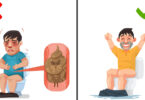When most people think about Irritable Bowel Syndrome (IBS), they imagine it as a condition affecting stressed-out adults.
But the truth is, IBS and gut imbalances often start much earlier — even in childhood or teenage years.
If you’re a parent, or if you remember struggling with stomach pain, diarrhea, constipation, or bloating as a teen, it’s important to know:
Those early symptoms are real, and they matter.

Early Signs of IBS and Gut Imbalance in Young People
Digestive disorders in young people can sometimes look different compared to adults. Here are common symptoms to watch for:
- Frequent stomach aches or cramping
- Alternating diarrhea and constipation
- Chronic bloating or excessive gas
- Urgent bathroom needs, especially after meals
- Nausea without clear cause
- Loss of appetite or picky eating linked to digestive discomfort
- Fatigue and brain fog
- Avoidance of school, sports, or social activities due to gut issues
Often, kids and teens don’t have the language to explain their symptoms. They might just say, “My tummy hurts,” or “I don’t feel good after eating.”
Because digestive symptoms are so common in childhood, they’re often dismissed as “normal growing pains” — but persistent or worsening symptoms are a red flag that deserves attention.
Why Gut Health Can Decline Early
Several factors may set the stage for IBS or chronic gut problems early in life:
- Antibiotic use in infancy or childhood
Antibiotics can wipe out beneficial gut bacteria, leaving the digestive system vulnerable. - Poor diet
Diets high in processed foods, sugar, and low in fiber can disrupt the developing gut microbiome. - Early food sensitivities
Unrecognized reactions to common foods (such as dairy, gluten, soy) can cause ongoing gut inflammation. - Stress and anxiety
Academic pressure, social changes, and family stress can all trigger gut-brain axis dysfunction. - Infections
Even one bad case of food poisoning or gastroenteritis can trigger long-term IBS symptoms in some children.
Why Early Recognition and Treatment Matter
Ignoring gut symptoms in young people can lead to:
- Chronic IBS into adulthood
- Anxiety or social withdrawal
- Nutritional deficiencies
- Poor academic performance due to concentration and energy issues
- Increased risk of developing other inflammatory conditions later in life
Early intervention means a better chance to heal the gut, restore the microbiome, and prevent long-term health problems.
How to Support Gut Health in Teens and Children
🛡️ Proactive Care:
- Keep a symptom diary to track patterns.
- Seek evaluation if digestive symptoms are frequent, severe, or interfere with daily life.
🥦 Nutritional Support:
- Prioritize whole foods rich in fiber, vitamins, and healthy fats.
- Identify and remove potential trigger foods.
🦠 Microbiome Restoration:
- Consider using a targeted probiotic designed to rebalance gut flora safely.
Liquid Spore Probiotic by GutShields is an excellent option, offering resilient spore-based strains that survive stomach acid and help restore gut balance naturally.
🧘 Stress Management:
- Teach healthy coping skills like mindfulness, breathing exercises, and gentle movement (such as yoga).
🩺 Work With Professionals:
- Pediatricians and gut health specialists who understand the nuances of IBS in young patients can create a personalized healing plan.
The Takeaway
Gut issues that start in childhood aren’t “just a phase.”
They’re a window into deeper imbalances that, if left unaddressed, can affect health for years to come.
Recognizing the signs early and supporting gut health with diet, lifestyle changes, and microbiome-focused strategies can dramatically improve the quality of life for kids and teens.
Don’t wait to take action.
Healing is possible — and the earlier you start, the stronger and healthier the gut (and the whole body) can be for the future.











This is a great template for magazine site.